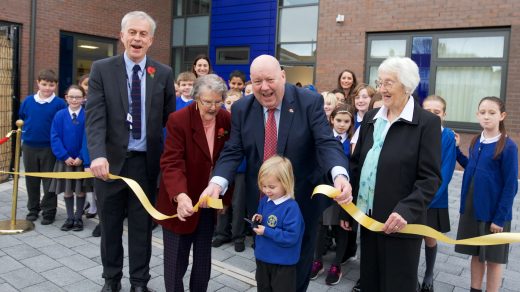Hundreds of thousands of pupils benefit from tutoring

Hundreds of thousands of children across the country benefited from catch up tutoring in the first term of the academic year, new figures from the Department for Education reveal (DfE).
Over 300,000 tutoring courses began last term, nearing the total figure for the previous academic year, keeping the National Tutoring Programme on track to deliver its ambitious target of two million courses this academic year.
Of the 302,000 courses begun last term, an estimated 230,000 were provided through the new, school-led tutoring pillar, showing that the introduction of greater flexibility for schools in providing tutoring is proving powerful in making sure the programme is reaching as many young people as possible.
The government’s education recovery plan includes investment of £1.5bn for tutoring,

schools minister, Robin Walker, said: “We are now seeing the real reach and impact of the unprecedented investment this government is making in supporting children’s education recovery. Every pupil – wherever they live – should be supported to get back on track and reach their potential, and that’s what this tutoring programme is doing.
“We know there is still work to do, but it’s hugely encouraging to see so many students from all backgrounds have been directly reached through the government’s tutoring programme, and I encourage all schools to take advantage of it.”
A further 52,000 courses began through Tuition Partners and an estimated 20,000 pupils have started packages through the academic mentor pillar of the programme. The government is working closely with Randstad and the sector to make sure these numbers continue to rise and tutoring continues to reach the students who need it.
As schools manage the higher than expected absence among staff and pupils, the National Tutoring Programme (NTP) will continue to offer access to tutoring through all three strands for the remainder of this academic year to ensure schools have the greatest possible flexibility in offering pupils the support they need, including access to online tutoring.
Commenting on the government release, Nick Brook, deputy general secretary of school leaders’ union NAHT, said: “Schools have told us that they find accessing tuition support through the National Tutoring Programme confusing and difficult. The numbers for the national scheme are, without question, disappointingly low.

“However, despite these problems with the national scheme, figures suggest that schools are stepping forward to arrange their own tutoring support for pupils, using the more flexible school-led tutoring grant. Despite funding only being made available in the Autumn term and training for tutors only being available from November, schools have done well to commence tuition for nearly a quarter of a million pupils. This shows real appetite for tutoring but that schools aren’t finding the national route accessible.
“Unfortunately, the story behind these numbers is that there are still many children that would benefit from tutoring support who are not getting it. Too many schools report that there are simply no tutors available that meet their needs. The government’s tutoring revolution risks stalling unless more is done to ensure that high quality, easy-to-access tutoring support is available to every school, for all pupils that need it, in every single part of the country.”
According to the research, schools faced complex challenges in the Autumn 2020 term, relating to pupils’ academic progress, wellbeing, and behaviour, as well as managing ongoing to COVID-19 restrictions. Schools responded to these by employing varying strategies targeting specific groups, such as those who had fallen behind in their learning, disadvantaged pupils, pupils with SEND, or transition year groups.
Evidence suggests that small group tuition can boost progress by an average of two months in secondary schools and four months in primary schools. By providing high-quality tuition to pupils through the NTP, the government want to extend this catch-up opportunity to pupils whose education has been impacted the most by the COVID-19 pandemic.




